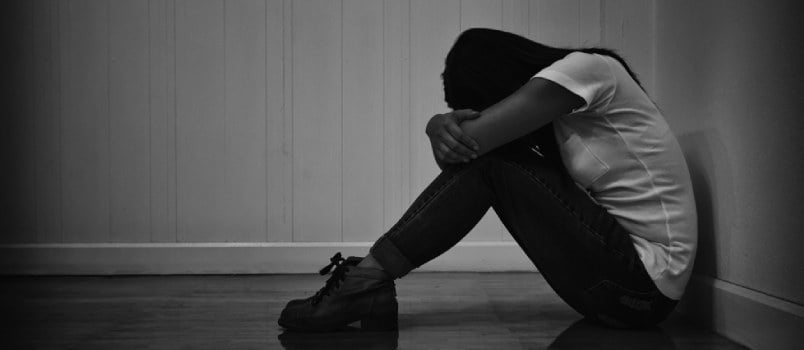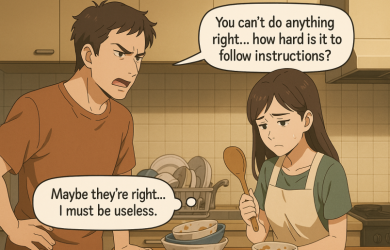Psychological Abuse: Definition, Signs and Symptoms

Unlock Daily 30-Sec Tips for a Happier Relationship
👉 Subscribe FREEKey Takeaways
Marriage.com AI Quick Summary
When you hear the word abuse, what’s the first word that comes to your mind? You might be acquainted with someone who has experienced domestic abuse. We all know that more than a million cases of domestic abuse are reported yearly, but we don’t know that the cases that go unreported are much greater. Especially the cases of abuse behind closed doors.
According to Grady Shumway, a licensed mental health counselor:
Domestic abuse often remains hidden due to fear, shame, or a lack of support, leaving many victims trapped in silence.
It’s crucial to promote an environment where individuals feel safe to speak out and seek help.
One of the most common types of abuse that go unreported is psychological abuse in marriage; it’s literally a horror story, and sadly many people who experience psychological violence don’t go to the authorities or seek help.
Together, let us understand the definition, signs, types, and symptoms of psychological abuse in marriage.
What is psychological abuse?
By definition, it is any cruel, abusive act that causes mental suffering, the feeling of being powerless, alone, fearful, sad, and depressed in a partner. Psychological abuse can be verbal and non-verbal and is used to create fear and a sense of irrational respect from the victim.
What’s alarming is that this kind of thing is really common.
Yet, only a few people understand what psychological abuse is and how to offer help to a victim if they ever meet someone who experiences this type of abuse.
Since signs of psychological abuse don’t show, such as bruising, we won’t immediately see when someone is experiencing it.
Still, the most common reason most cases go unreported is that most victims don’t say anything because of fear or that twisted mindset that they must endure the torture for love, family, or whatever reason.
Some might say that this kind of abuse isn’t as bad as physical abuse, but most experts would argue that psychological abuse is as destructive as any form of abuse.
Anyone who has experienced violence will no longer feel safe in their own home or trust any other person, ultimately destroying relationships, self-esteem, faith in humanity, and even how you see yourself.
Furthermore, abuse of any form will greatly affect children and how they see the world growing up.
Related Reading:- How to Deal with Psychological Abuse in Relationships
How to know if you are being abused
Psychological abuse in relationships can sometimes be hard to see because most couples today show off how perfect they are in public and on social media.
However, some might not even know they are already being abused because it’s not so frequent.
But abuse is always like that; before you know it, you’re stuck in an abusive relationship. So how do you know if you are being abused?
You will know when something’s wrong. Abuse always begins after marriage or engagement and may not be so frequent to start.
It may take months or years to progress because the reality is; the abuser wants you to depend on them; that’s why abuse mostly requires years of being together. As the years’ pass, the abuse gets worse.
From yelling to calling names, from picking a fight to belittling your personality, from swearing to threats — abuse isn’t limited to physical violence only.
Signs of psychological abuse
We may not be familiar with the signs, but once we are, we can be more sensitive toward subtle symptoms of psychological abuse on a friend or loved ones. Sometimes, all the victim needs is a sign that you are willing to help and that there is still hope for them. Let’s understand some of the signs of:
- Being called names like “stupid,” “moron” etc.
- Frequent yelling
- Constant insults to you, your personality, and even your family
- Living in a life of torment
- Uncertainty about when your abuser would strike – feeling threatened all the time.
- Threatening to leave you, won’t give you food, or take away your children
- Being imitated in a sarcastic way to mock you
- Constant bad-mouthing and swearing
- Ignoring you and your needs as a person
- Isolating you from your friends and family
- Bringing back every mistake that you’ve made and pointing out how incompetent you are
- Comparing you with other people
- Torturing you over and over again using your weaknesses.
Related Reading:- 50 Signs of Emotional Abuse and Mental Abuse: How to Identify It
Watch this video explaining how gaslighting can manipulate your mind.
Effects of psychological abuse
The effects of psychological abuse in marriage may not be that obvious because there’s no physical evidence. Still, once we have a clue, we can easily spot the effects of the psychological trauma of abuse.
- No longer shows interest in personal development
- Fear
- Lack of eye contact
- Loss of interest in fun things
- Nervousness with other people
- Depression
- Avoiding the chance to talk things over
- Sleep deprivation or too much sleep
- Paranoia
- Anxiety
- The feeling of overall helplessness
- Lack of self-esteem
- Avoiding contact from relatives or friends
Types of psychological abuse
As mentioned repeatedly, psychological abuse symptoms are not as visible as physical abuse, so it is important to educate yourself about different types of psychological abuse.
Here are some types of psychological abuse in marriage.
- Intimidation
- Coercion
- Bullying
- Ridicule
- Humiliation
- Gaslighting
- Harassment
- Infantilization
- Isolation
- Silence
- Manipulation
- Control
- Name-calling and threats
- Bad Mouthing
Examples of psychological abuse
As we are discussing psychological abuse in depth, to provide some clarity, here are some examples of psychological abuse that might help you identify it.
- Yelling or swearing at your loved one.
- Constantly criticizing and picking on one person.
- Humiliation someone publicly or hurting their self-esteem.
- Constantly blaming someone for your own problems.
- Threatening someone to hurt them or leave them.
- Unsuccessful in creating a safe and trustworthy environment for someone.
- Not being concerned about your loved one and refusing to help anyone but yourself.
Related Reading:- What is Emotional Abuse?
Coping with psychological abuse
You can cope up with psychological abuse. Not all of us are privileged to express what we feel but to do that, we need a strategy, and here are some ways to help you.
1. Identify the problem
We are not talking about psychological abuse but the reason behind it. Differentiate between healthy and unhealthy behavior.
2. Don’t react to your abuser
Make sure if you find yourself in a situation where your abuser is gaslighting you, try to avoid giving a reaction. Your reaction is their fuel. Set boundaries and be firm in your decisions. Stop giving them a sense of satisfaction by reacting to them.
Grady Shumway, LMHC, further shares:
By staying calm and composed, you take away the control your abuser seeks, making it harder for them to manipulate the situation. Setting clear boundaries and focusing on your own well-being is key to protecting yourself emotionally.
3. Plan
You know that you can’t really change a person or walk out of the situation immediately. It is best to make a plan, and you need to strategize it wisely. Seek help from trusted friends, family members, neighbors, and legal authorities if needed.
4. Collect proofs
Your abuser might go back on their words and deny that they have said anything cruel or gaslighted you. It would be best if you kept a record. You can write it down or record a video so that you have proof that it happened.
5. Try therapy
Many people who have been through psychological abuse in marriage feel ashamed of telling others what happened to them as they think that no one would understand.
However, it is important to deal with this trauma, and it would be best if you could get help from a professional. It will allow you to process your emotional trauma and overcome it.
You can also join a support group, which will allow you to open up since people around you share similar experiences.
Related Reading: The 10 Best Benefits of Marriage Counseling
Final thought
Psychological abuse examples include swearing and calling you names when you do not meet the abuser’s demand or if you say something that hurts their ego. They strike by threatening you that they will leave you or even take away your children.
Psychological abuse tactics include threats of physical abuse, shaming and leaving you, and getting the kids if there are any. These threats are being used because the abuser sees that this is how they can control you.
The abuser tends to see your weaknesses and holds you a prisoner with them. They will control you using words to weaken you, and soon you’ll believe all these words. Most victims feel isolated and scared, so they don’t seek help, but this has to stop.
If you know someone or is someone who is experiencing psychological abuse in marriage, know that you are not alone in this battle. You are the one giving power to your abuser, and it has to stop. Call a trusted family member or a therapist and seek help. Don’t tolerate abuse, for this will also be the world where your child grows. You always have a choice, so choose to be free.
 Expert Q&A
Expert Q&A
Does psychological abuse justify a restraining order?


Christiana Njoku
Licensed Professional Counselor
Expert Answer
As a counselor, it's crucial to highlight that psychological abuse can significantly affect a person's emotional and mental health. Although it might not result in physical marks, it can be just as harmful as physical abuse. If you constantly feel scared, anxious, or threatened by someone, getting a restraining order could be essential for your protection and health. It's important to note that the rules and laws about restraining orders differ from jurisdiction to jurisdiction. I suggest talking to a lawyer or legal officials to determine the best way to handle your case. Make your emotional safety a priority and seek help.
 Tips
Tips
Write your tip or submit a video tip
All tips are reviewed before the publishing.
Share this article on
Want to have a happier, healthier marriage?
If you feel disconnected or frustrated about the state of your marriage but want to avoid separation and/or divorce, the marriage.com course meant for married couples is an excellent resource to help you overcome the most challenging aspects of being married.
Recent Articles
Related Quizzes
Unlock Daily 30-Sec Tips for a Happier, Healthier Relationship
👉 Subscribe FREE on YouTube We'd love your feedback!
We'd love your feedback!
 Expert Q&A
Expert Q&A
Ask your question related to this topic & get the support you deserve from experts.





 Thanks! We'll do our best to answer your question and post it above.
Thanks! We'll do our best to answer your question and post it above.















